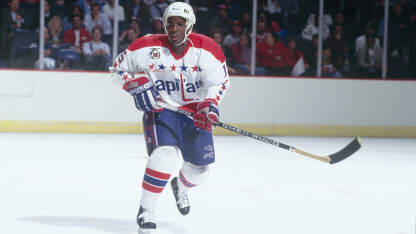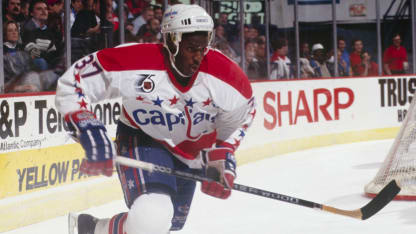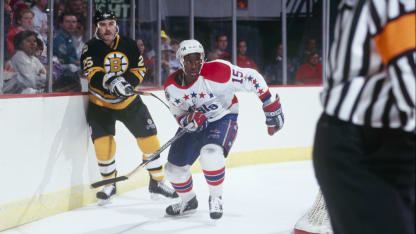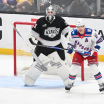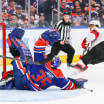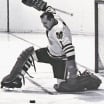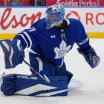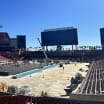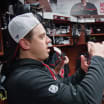Reginald Savage's NHL career was brief, but historic.
The forward from Montreal scored his first NHL goal on a penalty shot against Minnesota North Stars goalie Jon Casey at 17:30 of the second period in a 5-4 Minnesota win at Capital Centre in Landover, Maryland, on Nov. 18, 1992.
The stick Savage used is in the Hockey Hall of Fame. Former teammates, however, said they'll always remember him more for a personality that lit up a locker room.
"If you find pictures of Reggie, there's nothing but smiles, I mean a million-dollar smile," said Alan May, a Capitals TV analyst who was Savage's teammate in 1991-92. "Everything about him was incredibly likeable."
Savage died on Dec. 24 in Florida at the age of 53 after battling cancer, family members said on Thursday.
"Up until the last minute, he worked hard to stay alive," his sister, Sonia Savage, said. "He didn't want to quit. He kept trying and trying. He had pain but he always said, 'We'll be okay, we'll be okay.' But he didn't make it."
Washington selected Savage in the first round (No. 15) of the 1988 NHL Draft. He was a gifted scorer whose 139 points (82 goals, 57 assists) in 42 games in 1986-87 helped guide Richelieu
to the Air Canada Cup (now the Telus Cup), Canada's Under-18 national championship.
He had 19 points (10 goals, nine assists) in nine games and was named the tournament's most valuable player.
Savage had 329 points (177 goals, 152 assists) in 185 games with Victoriaville of the Quebec Major Junior Hockey League.
